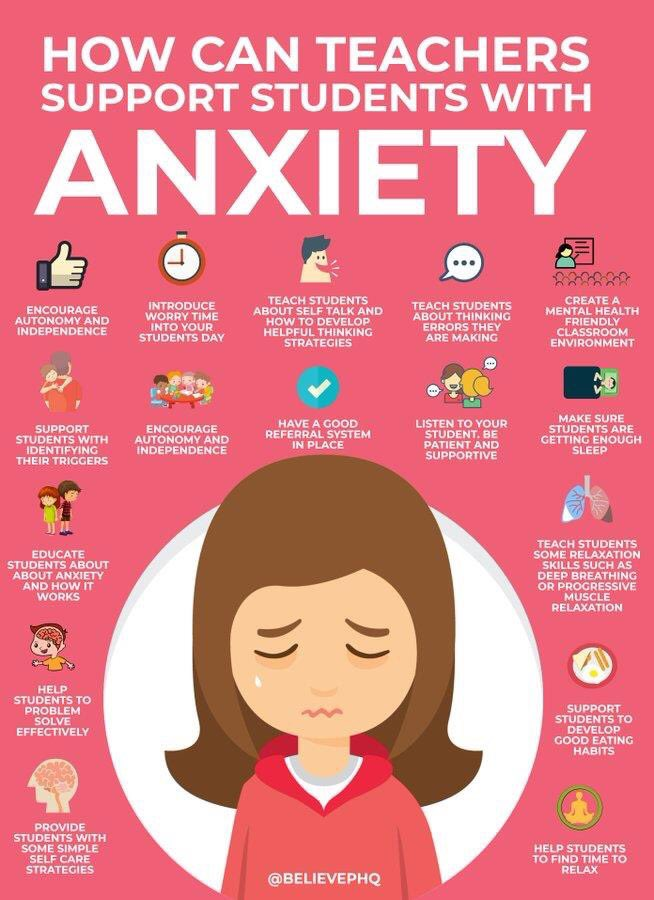How to help a child with performance anxiety
Stage fright: How to help kids with performance anxiety
Does your child get butterflies before ballet recitals, school concerts or class presentations? Performance anxiety is common in kids. We asked experts how to cope.
Tears, tantrums and tummy aches: all of these symptoms can accompany the common childhood experience of performance anxiety, a familiar topic for Bobcaygeon, Ont., mom Michelle Garrett.* When her son Jesse* was assigned his first class speech in grade three, it created a lot of tension in their home.
“When he has to do something in front of others, he shuts down. He cried and refused to do the work until his teacher prompted him at school,” Garrett says. Jesse was last to present on speech day, and as soon as he made it to the front of the class, he froze and began to cry. I know, because I was his teacher.
Often called “stage fright,” performance anxiety can rear its head in a variety of locations other than formal recitals or concerts, including the sports field and the classroom.
This anxiety can appear at an early age, as Toronto mom Shelley Anderson* knows. Though her three-year-old daughter loves to dance, Anderson struggles each week to get her to participate in ballet class. “She’ll beg us to pick her up, or fall to the ground and have a tantrum rather than join in,” says Anderson. Anxiety can paralyze older children as well—when my dad was a high school hockey coach, he had a player who threw up before every single game—and can last well into adulthood.
According to Vancouver child psychologist Carla Fry, who specializes in child and adolescent anxiety, some nervousness before performing is extremely common in children. My own daughters, who are six and eight, have been singing and dancing on stage since the age of three, and even now they still talk about having butterflies before their shows. However, for some kids, it’s far more serious than that.
When required to perform, many children experience racing heartbeat, headaches and sweating. “But the tummy-related problems are always the most common,” says Fry. “It can be stomachaches, nausea or diarrhea. Kids also complain about blushing, because it’s so obvious to others.”
“But the tummy-related problems are always the most common,” says Fry. “It can be stomachaches, nausea or diarrhea. Kids also complain about blushing, because it’s so obvious to others.”
Anxiety becomes a real problem when the lead-up or aftermath is stressful enough to impact the child’s normal functioning, which is usually most evident at home. One eight-year-old student I know appears very confident when speaking in public or performing musically, but she experiences a lot of anxiety both before and after. “I don’t like people looking at me, and sometimes before I do it I feel dizzy and shaky, like I’m going to fall,” she says. Following a wonderful holiday concert performance, she went home in tears because she felt she had “messed up.”
Why are some kids so anxious about performing? “It’s a complex interplay between three factors,” says Fry. The first is the temperament or personality the child is born with. The second is genetics—30 to 40 percent of any kind of anxiety is understood to be genetic, and children born to anxious parents are more likely to exhibit it.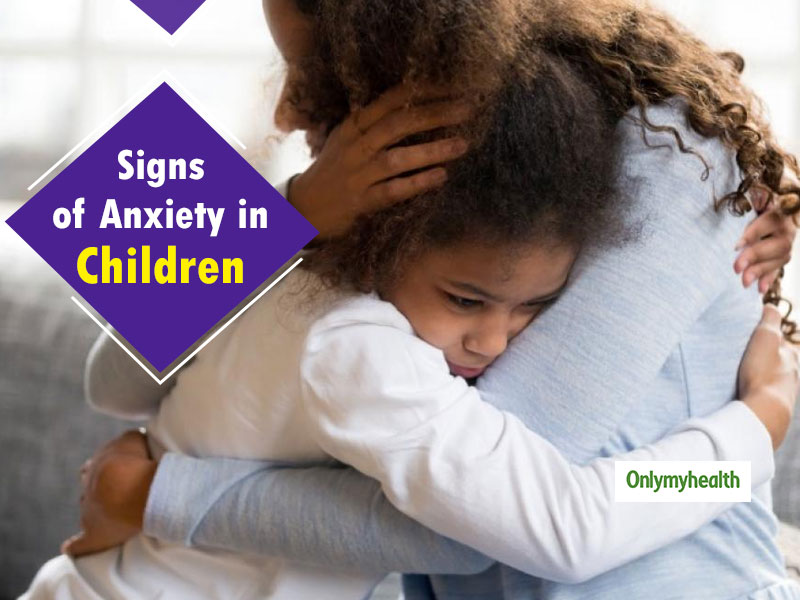 The third factor is learned behaviours, which can stem from a negative experience the child has had in the past, or messages they’ve received, such as hearing an older sibling say, “public speaking is so scary.”
The third factor is learned behaviours, which can stem from a negative experience the child has had in the past, or messages they’ve received, such as hearing an older sibling say, “public speaking is so scary.”
Garrett believes that her son worries about what others think of him, and doesn’t want to be embarrassed in front of his class. “He has always struggled with reading, so anything related to that is particularly hard for him, because he lacks the confidence.”
Fry says that the first step in helping your child deal with performance anxiety is to explain that these kinds of jitters are normal, but avoid statements like “Don’t worry about it,” or “You’ll be fine.” Says Fry, “Anything that smacks of judgment makes it worse.” While you may be trying to demonstrate that performance anxiety is no big deal, these kinds of comments can send a message that a child is wrong to feel the way he or she does. Fry suggests starting with an expression of empathy, followed by a statement or question that implies the child will be forging ahead anyway, combined with coping strategies.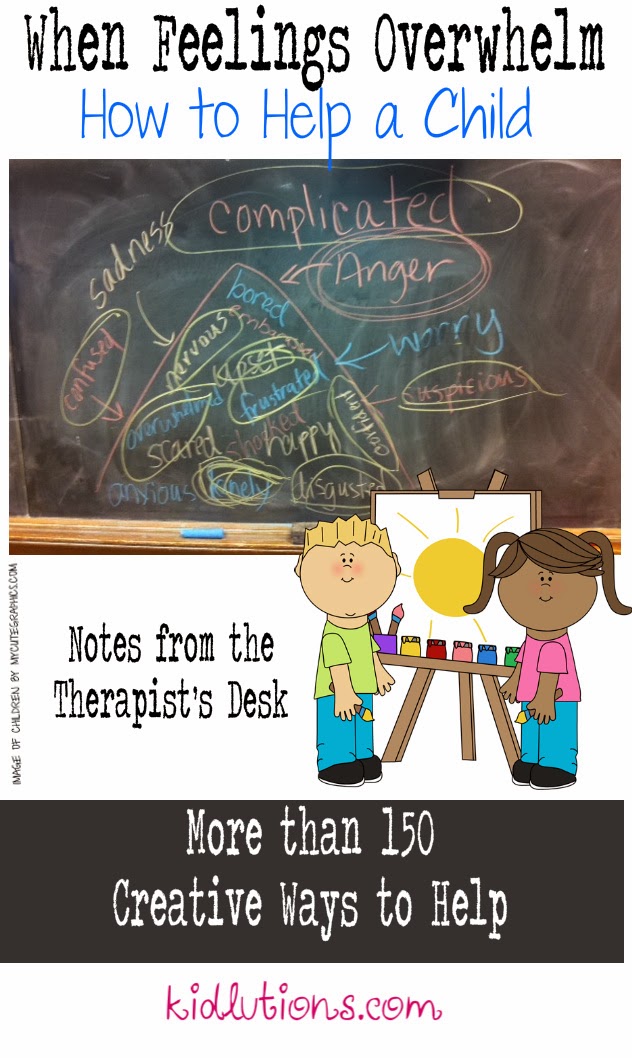 An example of this could be, “Yes, that’s a tricky situation that you’re in. Do you want some help to figure out how you’re going to cope with it?”
An example of this could be, “Yes, that’s a tricky situation that you’re in. Do you want some help to figure out how you’re going to cope with it?”
Fry also discourages parents from allowing their children to avoid or run away from the situation that makes them anxious. “The knee-jerk reaction for many parents is to write a note to the teacher, or speak to the coach to try to get their child out of the activity, but that’s not the best route in the long run. Unless it’s really extreme, the focus should be on building up kids’ resilience and power to deal.”
In my classroom, I sometimes allow anxious students to present to me privately, which Fry approves of, as long as baby steps are being taken towards growth. “Maybe the next time, you’ll record their presentation on the iPad and show a clip to the class, so their peers see them as well. Never let the child out of the situation entirely, or anxiety will continue to grow,” she advises. “We know that miniscule steps, and continuing to move forward, help slay the dragon of anxiety. ”
”
While kids should be challenged slightly beyond their comfort zone, it’s up to parents to decide whether to continue with optional activities, like sports or music, that are causing most of a child’s anxiety. “Exposure to the feared event should only happen in proportion to how well the child has been prepared to handle it,” advises Fry. This may depend on the support available from the instructor or coach, how easily the child picks up anxiety coping skills, and how much time and patience you have to guide and practise with your child.
It’s also important to help children understand what anxiety is. Fry tells kids that the front of our brain knows we’re prepared and that the situation’s not that bad, but the back of our brain doesn’t really understand words or listen to these pep talks, and it overreacts and gets excited—as if there’s a real danger. The best way to calm that part of the brain down is with strategies like meditating; slow deep breathing; and loosening up the muscles. (She uses cooked pasta noodles as an example: show kids how to stiffen and relax each of their limbs, wiggling them like floppy noodles.) Going for a leisurely walk, getting ready slowly, and even speaking gently and calmly can help lower the heart rate and get kids feeling relaxed. “A combination of rational thought, paired with body-calming techniques, will make things better—though not perfect,” she says.
(She uses cooked pasta noodles as an example: show kids how to stiffen and relax each of their limbs, wiggling them like floppy noodles.) Going for a leisurely walk, getting ready slowly, and even speaking gently and calmly can help lower the heart rate and get kids feeling relaxed. “A combination of rational thought, paired with body-calming techniques, will make things better—though not perfect,” she says.
In the book Anxious Kids, Anxious Parents, psychologist Reid Wilson and psychotherapist Lynn Lyons suggest getting kids to speak directly to the “worry” whenever it appears. For those with performance anxiety, that may sound like: “Oh, Worry, you always come on recital day and make my tummy hurt. But I don’t need you today, because I’m ready!”
A 2011 study published in the journal Science found that students who wrote about their anxieties before tests at school actually performed better, another strategy which may assist kids who are old enough to express their feelings in writing.
It can also be helpful to focus on the child’s journey and the efforts they’ve made, rather than the outcome (for example, winning the competition or getting an A on the test). While we want children to eventually find their own motivation, Fry suggests starting with small rewards which focus on the process, reinforcing the small steps children make to face their fears, despite the anxiety they feel. These rewards can be personalized, depending on what motivates the child. Rewards involving time with parents can be very effective. Maybe it’s a round of Candyland with your little one after she successfully participates in Show and Tell, or maybe it’s a latte break after your teen’s violin concert rehearsal. Reid and Lyons also recommend activity-based incentives to encourage progress. (For younger children, rewards should be smaller and more frequent.)
These parenting techniques may be enough to help many kids tackle their performance fears—but for some, the anxiety persists.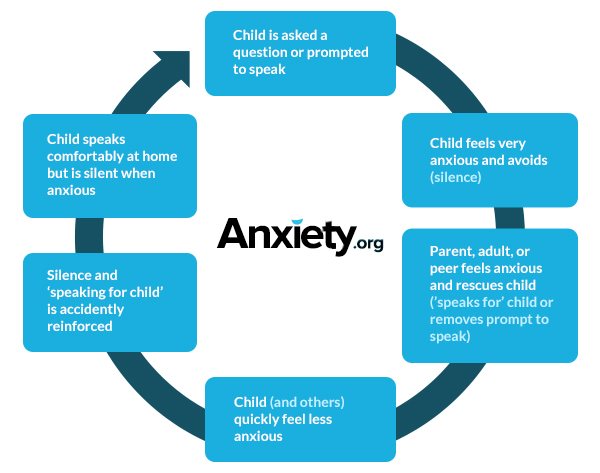 Fry suggests seeking professional help if a child’s anxiety is preventing him or her from fulfilling the requirements of the school curriculum, or if it’s affecting his or her ability to cope with normal life (if your child can’t think of anything else, for example, or is having significant trouble eating or sleeping).
Fry suggests seeking professional help if a child’s anxiety is preventing him or her from fulfilling the requirements of the school curriculum, or if it’s affecting his or her ability to cope with normal life (if your child can’t think of anything else, for example, or is having significant trouble eating or sleeping).
Performance anxiety alone is not necessarily a sign of an anxiety disorder, but if it appears with other symptoms of anxiety, such as obsessing about germs, nail-biting or extreme perfectionism, a professional assessment and treatment plan may be the next step.
As for Jesse, after a year of small improvements (first presenting to a partner, then a small group, then a larger group) he got up in front of his entire grade-four class to deliver his next speech. His hands were shaking and he says his stomach was flip-flopping, but he had a smile on his face. Progress.
*Name has been changed.
Read more:
Social anxiety: How to help kids who won’t join in
New study: Childhood shyness linked to adult anxiety
How I tried to conquer my kid’s performance anxiety
Stay in touch
Subscribe to Today's Parent's daily newsletter for our best parenting news, tips, essays and recipes.
- Email*
- CAPTCHA
- Consent*
Yes, I would like to receive Today's Parent's newsletter. I understand I can unsubscribe at any time.**
FILED UNDER: Anxiety Behaviour School School-age
Your Teen Has Sports Performance Anxiety. Now What?
LaShieka Hunter / Supporting Emotional Health
Sep 27, 2021
Some children love sports, get pumped for a little competition, and thrive under pressure on the field or court. Others experience negative thinking, fear of failing, and the overwhelming need to be perfect. Indeed, game-day stress can make kids feel anxious—even debilitating those who don’t know how to deal with the emotions they are experiencing.
If your child experiences sweaty palms, trembling, headaches, a racing heart, or even vomiting before or during the game, it may be more than just “a bad case of nerves.” They may have sports performance anxiety (SPA).
What is SPA?
Anxiety is the intense, excessive, and persistent worry and fear about everyday situations. But SPA occurs when someone is anxious, nervous, or too frightened to perform freely during competition. The person often has an irrational embarrassment or fear about not performing well or losing the game or match. SPA has a lot to do with the fear of failing.
Children with SPA often think to themselves, “I am terrible at this sport,” or “I can’t play under this pressure,” or “I am a terrible teammate,” or “I hurt my team more than I help.” This negative thinking and self-talk can destroy confidence and interfere with or inhibit their ability to compete in the sport.
How Should You Handle It?
You might think the smartest (or easiest) solution would be to have your child stop playing the sport altogether, right? Not necessarily, says Dr. Paul Harris, Assistant Professor of Education at the University of Virginia, who works with African-American male student-athletes on college and career readiness.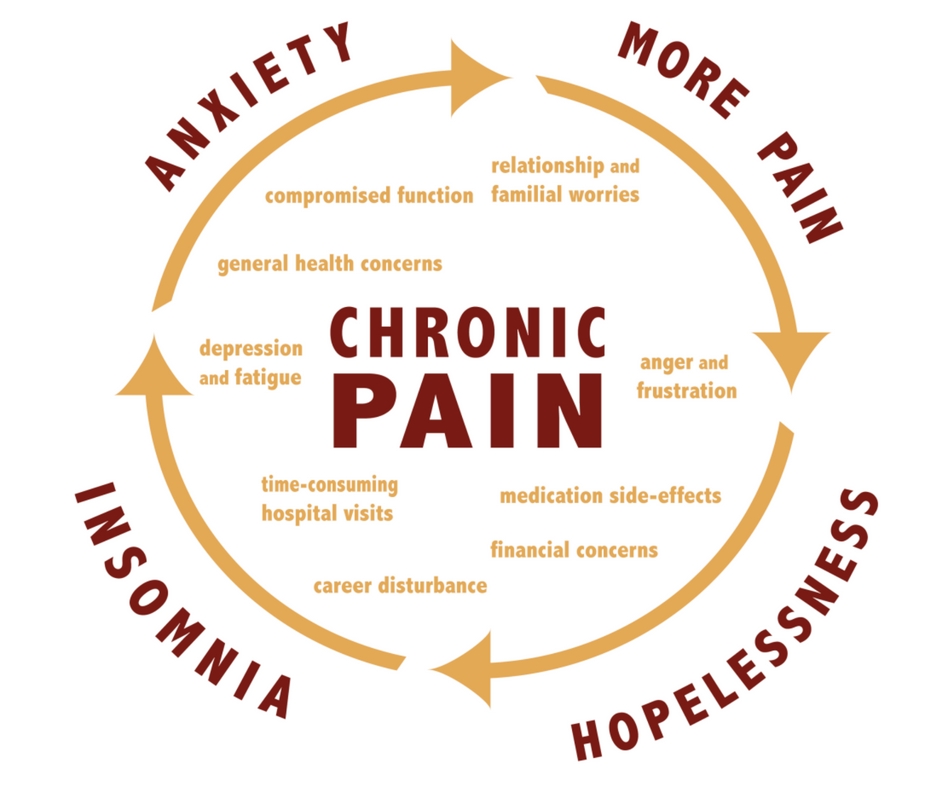
“Participating in sports is such a useful medium for so many life lessons, which is why I hesitate on saying don’t play the sport anymore, as opposed to learning how to work within,” he explains. “SPA is treatable and manageable. There are enough interventions to disrupt the narrative that is causing the anxiety so that the child can enjoy the sport.”
If playing the sport creates what Dr. Harris calls “an unyielding” amount of stress, interfering with a child’s performance, disrupting their daily living or social functioning, or even bringing about some perceived threat of being physically hurt during competition, that’s more than the pre-game jitters. It’s grounds to consider removing them from the activity.
But if your child is experiencing SPA, how can you help them combat it and build up their composure and resiliency? The key is to get rid of negative and irrational thoughts and control emotions. Here are seven strategies for doing so.
Turn down the volume on stress
You may be the type of parent who is passionate about the game and gets a tad bit loud when it comes to cheering or jeering. If so, make sure anything you’re saying comes from a place of love. Sports can be stressful enough without a parent yelling out critiques or causing scenes. “It’s usually not intentional. However, you have to ask, ‘What if what I’m doing is making it worse for my child?” Dr. Harris explains. “For example, unsolicited advice on the field or the court may seem like a little thing. But they are little big things.”
If so, make sure anything you’re saying comes from a place of love. Sports can be stressful enough without a parent yelling out critiques or causing scenes. “It’s usually not intentional. However, you have to ask, ‘What if what I’m doing is making it worse for my child?” Dr. Harris explains. “For example, unsolicited advice on the field or the court may seem like a little thing. But they are little big things.”
Jacques Louis, Director of Outreach at the Center for Parent and Teen Communication (CPTC) at the Children’s Hospital of Philadelphia (CHOP) has two teenage sons, ages 15 and 16, who play sports. He remembers realizing a time he’d been a little loud while yelling encouraging words at one of his son’s games. Afterward he explained, “I’m doing that to let you know that I’m your main cheerleader. I’m trying to build you up from a distance,” says Louis. “I think explaining that to your kids is helpful. And if it lands bad, you can say, ‘I’m sorry, I didn’t know you didn’t want me to yell like that.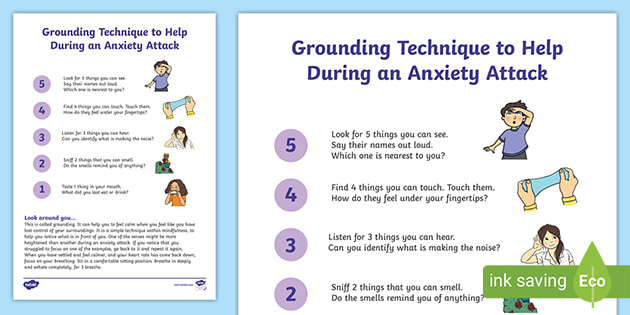 I’ll relax next time.’”
I’ll relax next time.’”
Keep an open dialogue
Honest conversations help keep SPA at bay. Help your child become comfortable enough to share their feelings about sports with you. A constant and open dialogue can help anxious children get matters off their chest and help you get in touch with their thoughts to be aware of nervousness that may actually turn into a problem. “If the student-athlete can communicate, ‘This is what triggers me,” or ‘This is where I am, and this is what would help me,’ that is going to be very beneficial,” says Dr. Harris.
Help your child become comfortable enough to share their feelings about sports with you. A constant and open dialogue can help an anxious child get matters off their chest.
Create pre- and post-game rituals
Louis and his wife try their best to comfort their sons. “We let them know -win or lose- we love you. We start and finish with that. Their mom is always there for that hug, and I am there to give them that high five to mitigate anxiety,” he says. He also lets his sons choose their own “hype music” to get psyched for competition. “We let the car be their space before the game. But on the way back, we talk, we debrief.” Don’t have a car? Let your teen put on their headphones so they can listen to music on the train, bus, or walk to the game. Afterward, chat about the game like Louis does.
He also lets his sons choose their own “hype music” to get psyched for competition. “We let the car be their space before the game. But on the way back, we talk, we debrief.” Don’t have a car? Let your teen put on their headphones so they can listen to music on the train, bus, or walk to the game. Afterward, chat about the game like Louis does.
Practice centering techniques
Helping your child create and memorize mottos they can repeat before each game can be effective. Dr. Harris says these memorized statements may help counter the irrational stories children may tell themselves and build resiliency. “Self-talk can really be useful. Every time those negative thoughts or feelings come up, the athlete has something prepared to help with the anxiety,” says Dr. Harris.
Other centering methods that can combat the jitters include deep breathing, mediation, yoga, and visualization. “The student-athlete is visualizing themselves successfully doing the sport and doing it with ease,” says Dr. Harris. “A lot of sports psychologists use this very deliberate and intentional technique because it really helps the athlete once they are in competition.” So tell your child to close their eyes before a game and see themselves winning the race, the ball easily going into the basket, or the effortless touchdown being made.
Harris. “A lot of sports psychologists use this very deliberate and intentional technique because it really helps the athlete once they are in competition.” So tell your child to close their eyes before a game and see themselves winning the race, the ball easily going into the basket, or the effortless touchdown being made.
Reconsider high-level sports
Amateur Athletic Union (AAU) organizations, Select Teams, and travel squads are not for every child. These elite leagues often involve rigorous schedules, tough competition, and stressful cultures – a surefire recipe for unease and frayed nerves. If your athletes participate in this type of advanced competition, make sure they are emotionally and physically ready for the constant pressure to succeed.
Before you even expose your child to these teams, ask whether they want to participate in high-level sports. If your child is already playing at this advanced level, check in often to see if they’re having fun, engaged, and want to continue. If not, close that chapter and move on, perhaps finding an intramural team or a local league that isn’t as intense.
If not, close that chapter and move on, perhaps finding an intramural team or a local league that isn’t as intense.
Seek professional help
Obtaining the help of a mental health professional is an act of strength. If you’ve followed the techniques above and your child is still exhibiting SPA, turn to a licensed mental health counselor specializing in children or adolescents and can help challenge the irrational beliefs SPA causes. Ask your child’s pediatrician to recommend a reputable practitioner or check out Psychology Today to find a therapist near you.
Stay calm
When your child is feeling anxious or nervous, it’s natural as a parent to worry or be concerned about their well-being. The key is to stay calm for the sake of your child. They are watching your every move, so try to show confidence, and they will follow your lead. Be patient and trust that over time and with some of the strategies mentioned above, your child’s SPA will decrease, and they will be just fine.
Scroll Up
How to learn not to be afraid of bad grades and teach this to your child - Cool magazine
It seems that every adult who has lived to be a parent should realize that there is no connection between poor grades in school and a child's success and happiness in the future. However, according to school psychologists, 9 out of 10 schoolchildren admit that they are scolded at home for bad grades. Why are parents afraid of deuces like fire and scare their children with them? Child psychologist Karina Richtere helps us deal with this issue, she will tell you how to learn to calmly respond to marks in the diary.
Why is everyone afraid of twos?
It has long been noticed that parents in most cases react to bad grades more painfully than the students themselves. The fear of the deuce, which lives in every adult, comes naturally from childhood, and it is almost impossible to eradicate it completely. Such a sharp reaction of adults to the child's assessments is explained by the fact that they project them onto themselves and their parental competencies. Seeing the conditional deuce in the diary, they experience:
Such a sharp reaction of adults to the child's assessments is explained by the fact that they project them onto themselves and their parental competencies. Seeing the conditional deuce in the diary, they experience:
• Fear of public condemnation. Many parents experience shame when they receive grades, consider this their omission and mistake.
• Excitement. Seeing low grades in the diary, the parent begins to panic and worry about the future of the child.
• Guilt. Bad grades make parents feel guilty for the fact that they could not or did not have time to help the child with their studies, they missed something in education.
• Pity for the child and for yourself. Sometimes parents begin to feel sorry for the child due to the fact that, despite all efforts, he cannot understand the subject in any way. Also, parents feel sorry for their own funds, time and effort spent on solving this problem.
• Envy. It may seem that the parents of other students in the class can only be envied, because they do not have to face such difficulties.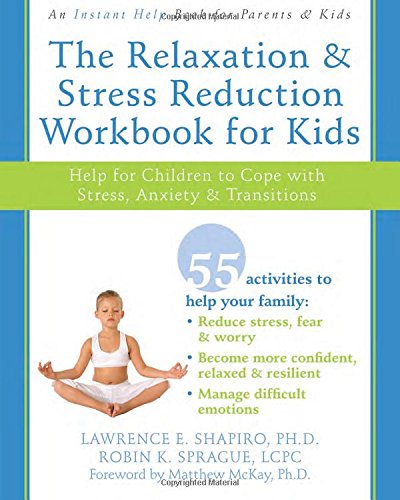
• Anger at the child. At the time of school failures, parents can get angry at the child, accuse him of laziness, not trying hard enough, lack of ability.
• Anger at the teacher. Sometimes anger is channeled to a teacher who cannot "normally explain", does not want to mess around, does not try to teach.
All these emotions are very strong and sometimes painful. And all of them are based on the limiting beliefs of adults themselves. Normally, these emotions should eventually be transformed into productive thoughts about how to help the child cope with the situation. However, sometimes the parent gets hung up on them.
What does a child feel when he gets a deuce?
It is very convenient to be able to have a child who only gets A's, but this happens extremely rarely. Most children at some point in their school life still face difficulties and do not get the highest marks. Seeing the first two in his diary, the student can feel:
• Fear. Even if a child gets a bad grade the first time, he already knows that this can lead to scolding and punishment. He may be afraid to admit his failure and try to hide the failure.
Even if a child gets a bad grade the first time, he already knows that this can lead to scolding and punishment. He may be afraid to admit his failure and try to hide the failure.
• Fear of disappointing parents. Most children are afraid to disappoint their parents with their poor performance, they do not want to upset them.
• Anger and frustration. The anger that arises in a child can be directed both at himself and at the teacher who slapped a deuce.
• Lack of self-confidence. Any negative assessment is a painful blow to self-esteem for any child. A deuce can shake the self-confidence of even the most ambitious student.
How not to turn a deuce into a tragedy?
It is important to accept that how a child reacts to a bad mark depends on the reaction of adults. Therefore, so that a random deuce does not become a disaster for the whole life of a child, it is important to teach him to perceive constructive criticism correctly and adequately evaluate himself. For this you need:
For this you need:
1. Calm down. Survive the first storm of negative emotions and only then start a conversation with the child. Take a break if you need to cool down.
2. Sympathize. Offer your child your support and sympathy, do not devalue his experiences. Tell him that you understand how he feels.
3. Find out the reasons. There can be many reasons why a red “swan” appeared in the diary. Find out what's the matter: in a misunderstanding of the topic, inattention, lack of time or banal forgetfulness.
4. Discuss ways to get out of the situation. Based on the reasons for the failure, find with the child a way to improve the grades. Perhaps your help will be enough for him, he may have to find a tutor, depending on the scale of the problem.
5. Give the opportunity to correct. If the child is sure that a bad mark was received by chance, and he can correct it on his own, then be sure to give him such an opportunity. Be sure to agree when and how he should do it.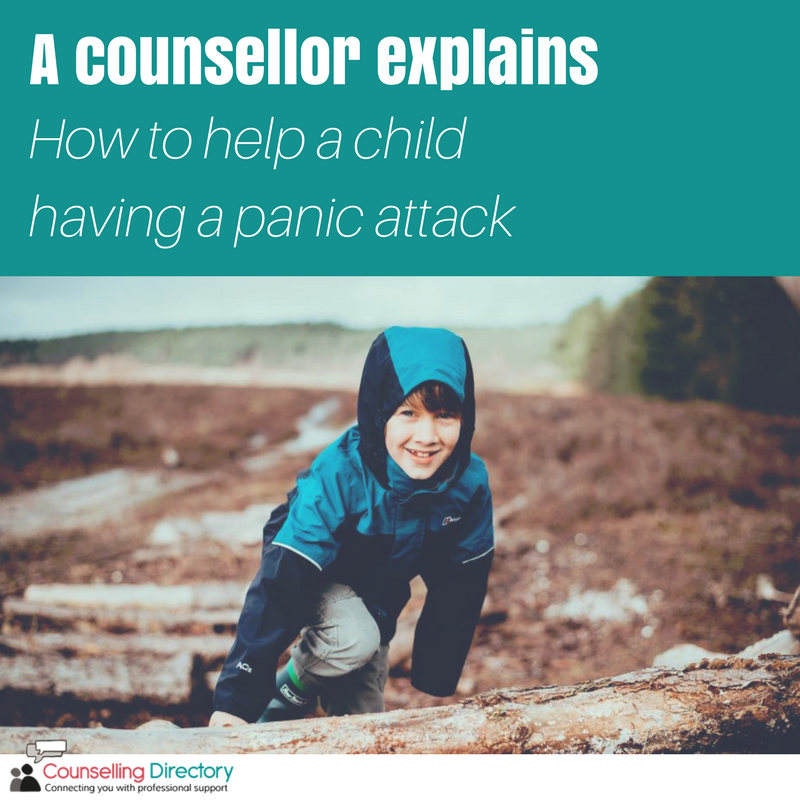
6. Separate your child's academic achievement from their personality. Believe to love your child even if he gets bad grades. Not in estimates, as they say, happiness.
What to do if again a deuce?
So that the child is not afraid to report his progress, does not hide the diary and does not invent more sophisticated ways to hide the deuce, it is important to respond calmly and constructively to grades.
How to turn a negative into a positive?
It is important to understand that the path to good academic performance and success is based not on criticism and punishment, but on communication, attention and praise. The deuce is just a red flag, signaling to the teacher, student and his parents where there are gaps in his knowledge. If all participants in the educational process perceive the mark in this way, then it will no longer cause fear and negative emotions. For a child to adequately relate to deuces in a diary, try:
• Teach your child not to be afraid of mistakes. Do not scold or criticize for grades, but help find a way to fix them.
Do not scold or criticize for grades, but help find a way to fix them.
• Explain that knowledge is more important than grades. Tell your child that a bad mark is not an indicator of his abilities, because the ultimate goal of education is not a beautiful certificate, but obtaining knowledge that will help him choose the sphere of his future activity.
• Properly praise. It is imperative to reward a student for his academic achievements, it is only important to do it right. When giving praise, focus primarily on the effort that the child has made to achieve it, and not on the result.
• Explain that you can't be good at everything. It is impossible to excel equally in all subjects. All children are different, with different mindsets and interests. Sometimes it’s even helpful to focus only on what you can do and what it takes to achieve your goals.
Studying at school is not a sprint, it is a real marathon race that lasts 11 years. And on the scale of this school marathon, a deuce is just a small obstacle, it will not affect the final result in any way. Treat grades right, and they will stop scaring you and your kids.
Treat grades right, and they will stop scaring you and your kids.
About the author
Karina Richtere is a psychologist, specialist in parent-child relations, Ambassador of Attachment Theory, popularizer of conscious parenting, creator of the online school "Mamazonka", mother of 5-year-old children.
https://www.instagram.com/mamazonka.ru/
web mamazonka.ru
The child is afraid to answer at the blackboard and is silent in the classroom: how to help him? Councils of psychologists and teachers
Probably, there is not a single schoolchild who, at the words of the teacher “will go to the blackboard ... ..”, would not feel a trembling in the knees and a rapid heartbeat. But someone manages to pull himself together and confidently answer all the teacher's questions, while someone still cannot cope with the excitement.
Today we will talk about what to do if the child is afraid to answer in class, is silent when asked by the teacher and is embarrassed to speak in front of the public.
Contents:
- Why are children afraid to answer in class?
- About fear of public speaking
- How to help a child become more confident and not be afraid to go to the blackboard?
- Dealing with the cause
- Psychological advice for moms and dads
- Preparing for oral answers correctly!
- A look at the problem through the eyes of a teacher: who is most often called to the blackboard?
Why are children afraid to answer in class?
Prostock-studio/Shutterstock.com
The very situation when a child is called to the blackboard is quite nervous and tense. The student is under the close attention of not only the teacher, but also classmates. Moreover, he still needs to demonstrate his knowledge, tell a learned topic or solve a problem.
For some children, the call to the blackboard causes slight excitement and anxiety, while others seem to fall into a stupor: they are silent or mutter something to themselves, someone may even cry.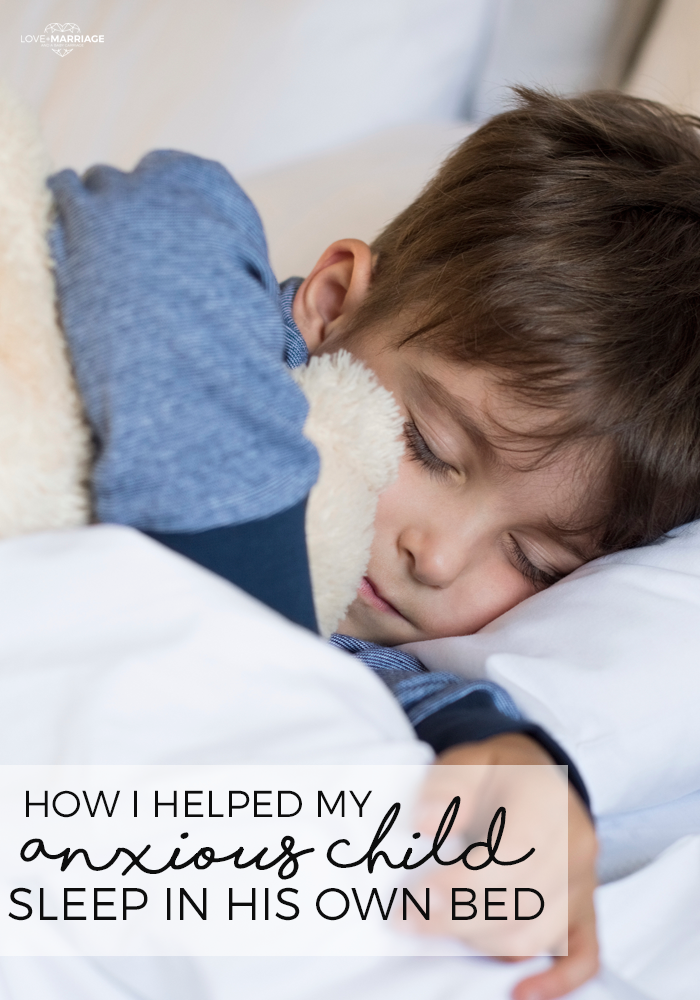
Why is this happening? There can be several reasons:
Fear of failure
The child is afraid that his answer will be wrong or the teacher will ask him too difficult a question.
Often such fears are associated with excessive demands of parents who want only excellent academic performance from their child.
Fear of a specific teacher
Prostock-studio/Shutterstock.com
As a rule, children are afraid of authoritarian, rude and sharp-tongued teachers who strictly monitor discipline and are not averse to expressing their opinion about the child in the presence of his classmates.
The child's personality traits: increased anxiety, timidity, timidity, shyness
Such children are afraid of any public speaking, they get used to a new environment for a long time and take any failure hard.
Insufficient knowledge of the subject
Prostock-studio/Shutterstock.com
The student knows that he "floats" on the subject, and if he is called to the board, he will not be able to answer well.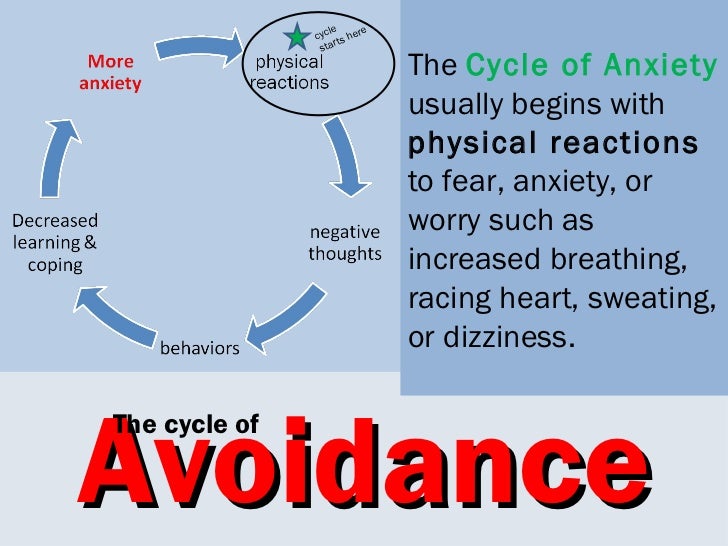 From here arises the fear and desire to "merge with the desk" when the teacher opens the magazine.
From here arises the fear and desire to "merge with the desk" when the teacher opens the magazine.
Speech deficiencies (stuttering, burr, lisp, etc.)
Any verbal answer causes inconvenience to such a child. He is shy about his speech and tries to say as little as possible.
Fear of ridicule and ridicule from classmates
Prostock-studio/Shutterstock.com
A child can be a victim of bullying, and any visit to the blackboard becomes a “holiday” for bullies.
As we can see, the fear of answering in class can be caused by a variety of reasons. And if the parents do not intervene in the situation and do not help the child, this can have negative consequences for him.
- The child will live in a state of chronic stress, worrying every day that he may be called to this or that lesson.
- Fear of answers at the blackboard gradually passes into adulthood, preventing your son or daughter from expressing his opinion at work, making a report or making a presentation.
 In this case, the person is said to have a fear of public speaking.
In this case, the person is said to have a fear of public speaking.
About fear of public speaking
Prostock-studio/Shutterstock.com
Scientifically, the fear of speaking in front of a large number of people is called glossophobia (literally translated as “fear of language”). It is known that about 95% of people in the world have experienced it.
Fear of speaking prevents people from living a full life and severely limits people in social interaction. A person begins to avoid situations where he would have to speak to the public (say a toast at a celebration, express his opinion at a meeting, etc.).
Glossophobia is accompanied by such unpleasant sensations as:
- palpitations;
- excessive sweating;
- trembling in arms and legs;
- dry mouth, lump in throat;
- nausea;
- feeling short of breath;
- feeling chilly or hot;
- stomach discomfort;
- tension in the whole body.

Fear of speaking in front of an audience may manifest:
Before a speech
Prostock-studio/Shutterstock.com
As soon as a person learns that he has to make a report or presentation in front of a large number of people, his usual way of life is disturbed, thoughts about a possible failure constantly revolve in his head, he eats and sleeps badly.
The closer day X approaches, the harder the speaker feels. He tries in every possible way to postpone this event or to refuse it altogether.
Someone may even fall ill before a performance, because the psyche cannot withstand such a load and turns on its own defense mechanisms, one of which is going into illness.
During a performance
Prostock-studio/Shutterstock.com
A person is on stage, and immediately a chorus of thoughts turns on in his head: what if the audience does not like what I have to say? What if someone laughs? What if everyone understands that I'm worried?
Any little thing can put a speaker out of action: a cough from one of the spectators, stuffiness, extraneous noise, and now he already loses the thread of the narration, begins to stutter and panic.
After the show
Prostock-studio/Shutterstock.com
Even after everything is over, a person with a fear of public speaking is tormented by doubts for a long time: did he speak well, did the audience like it, did he miss anything in his report, etc.
Scientists say that glossophobia is based on one of the basic human instincts - the instinct of dominance. Under its influence, a person seeks to occupy a higher hierarchical step on the social ladder. Fear of speaking in public is a defense mechanism that keeps people from being unsuccessful in the eyes of others.
Therefore the fear of speaking in public does not need to be eliminated . It is necessary to transform it into a positive attitude and self-confidence. Recognize that fear exists, but it will not prevent you from speaking in front of people and telling them everything you wanted.
How to help a child make friends with his fear, we will talk further.
How to help a child become more confident and not be afraid to go to the blackboard?
Prostock-studio/Shutterstock. com
com
A guide for parents who want to help their child not be afraid to reach out in class, respond and speak successfully in front of the whole class.
Dealing with the cause
As we already know, a child's fear of answering at the blackboard is always associated with a specific reason. It is necessary to solve the problem based on the root of the problem.
Fear of the teacher
Prostock-studio/Shutterstock.com
Find out from your child what exactly in the behavior of the teacher scares him.
If a teacher is rude, authoritarian and can hurt your son or daughter with a careless word, this is an occasion for a personal conversation with him:
- In a calm tone, without insults or reproaches, discuss the current situation with the teacher.
- Describe the characteristics of the child and his fear of answering at the blackboard.
- Ask if possible not to raise your voice to the child and not to call him to the board for a while.
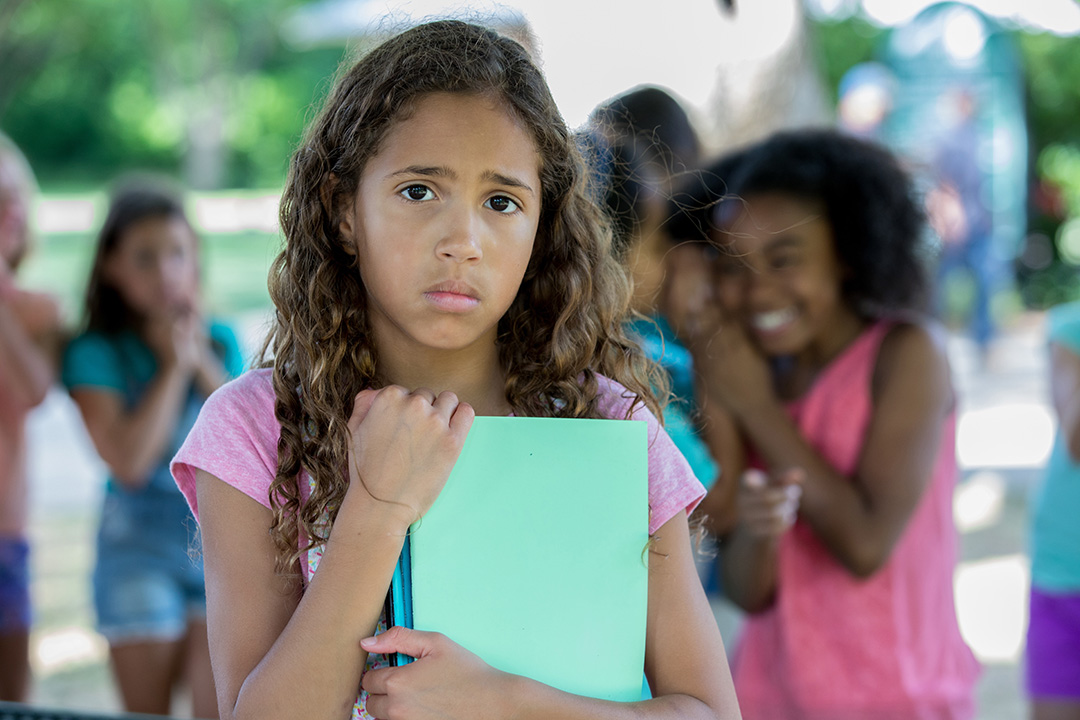
If the teacher does not contact you and refuses to help, try contacting the school psychologist or the school administration.
Read also A child has a conflict with a teacher: should parents interfere?
Difficulties with oral answers
If a student has a good visual memory, this can help him out in a situation of oral answer in a lesson.
Psychologists advise the following technique: going to the blackboard, the child must remember on which page of the textbook or notebook the answer to the teacher's question is written, and as if reading it from the sheet.
Fear of failure
Prostock-studio/Shutterstock.com
In order for a child to stop being afraid of getting a bad grade, parents should reconsider their expectations regarding the education of their son or daughter. Fives in the diary are, of course, good, but the well-being of the child and a healthy psyche are much more important.
A schoolchild can be told that studying at school is like a journey, and grades serve as guidelines in it.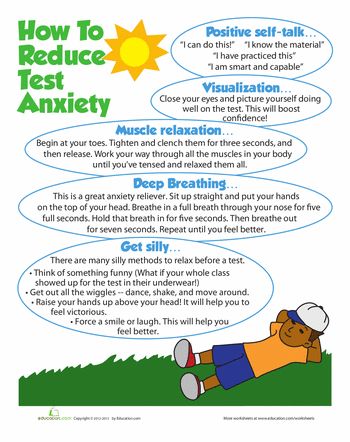 If you got a “five” or “four”, then you are moving in the right direction, and if suddenly a “three” or “two” - you have lost your way a little.
If you got a “five” or “four”, then you are moving in the right direction, and if suddenly a “three” or “two” - you have lost your way a little.
“Again a deuce…”: what is behind the child's low academic performance?
Misunderstanding of a subject
If a child does not master this or that subject well and because of this is afraid to go to the blackboard or is silent in the lesson, then it is necessary to fill in the existing gaps. For this purpose, additional classes with a teacher or tutor, online lessons, interesting videos on YouTube and other resources, as well as interactive excursions are suitable. Choose what you and your child like best.
The more a student learns something new and interesting about a subject, the more likely he will want to share it with the teacher and classmates. Instead of fear, he will begin to feel pride that now he knows so much.
Speech disorders
In case of speech disorders in a child, parents should visit a speech therapist or neurologist with him.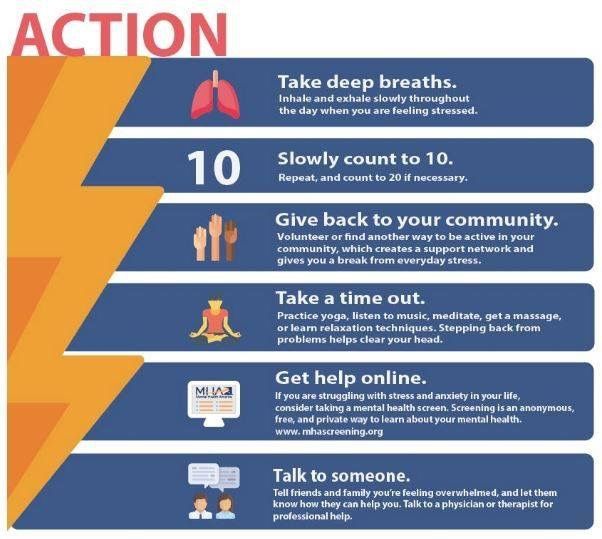 After all, correct speech is important not only for studying at school, but also for the future life of your son or daughter.
After all, correct speech is important not only for studying at school, but also for the future life of your son or daughter.
Bullying and ridicule
Prostock-studio/Shutterstock.com
If your child is the victim of bullying and bullying from classmates, do not let the situation take its course! Ask your son or daughter about what is happening, be sure to notify the class teacher and, if necessary, the school administration. Also, the child will need the help of a psychologist.
Together with psychologists, we analyzed in detail the acute and important topic of school bullying. Here are some resources to help you beat bullying:
- The fact of bullying was revealed: the procedure for legal actions for a parent.
- Children's conflicts: how to teach a child to stand up for himself?
- Bullying at school: what parents and victims should do.
- We bring up tolerance in children. Why is it so important to talk about racism and tolerance?
- Verbal and verbal aggression.
 When do "innocent" jokes turn into bullying?
When do "innocent" jokes turn into bullying?
Find out if your child is doing well at school: whether peers and teachers offend him, whether he gets to school on time and whether he follows a safe route home. Install the application "Where are my children" and see the exact location of the student, listen if necessary, what is happening around and call quickly, even if the child forgot to turn off the silent mode!
Psychological advice for moms and dads
Prostock-studio/Shutterstock.com
Our body and emotions are closely connected with each other. The human body is always sensitive to changes in the emotional state. Therefore, it is important to teach the child the techniques of muscle relaxation (relaxation) before going to the board. This will help him feel more confident and calm.
The following exercises can be used:
- “Blowing out the candle” (for facial muscles and breathing). Inhale deeply, and then purse your lips and exhale slowly, as if blowing out a candle.

- "Lemon" (for arm muscles). Imagine holding a lemon in your right hand. Squeeze it firmly to squeeze out the juice, then “throw it out” and relax your hand. Do the same with the left hand.
- "Elephant" (for leg muscles). Take a stable stance. Slowly transfer the weight of the body to one leg, and at the same time raise the other high and lower it down with force.
- "The cat stretches" (for the muscles of the neck and shoulders). Raise your arms up, then stretch forward, slowly stretch. Then sharply lower your hands down.
Pay more attention to your child's progress, praise him even for small victories . But there is no need to compare with other children. The child must know that his parents love him and accept him the way he is.
A student should be able to properly set himself up for a speech or an answer at the blackboard. You can use the following phrases:
“I have prepared well for the lesson and will tell the teacher everything when I go to the blackboard.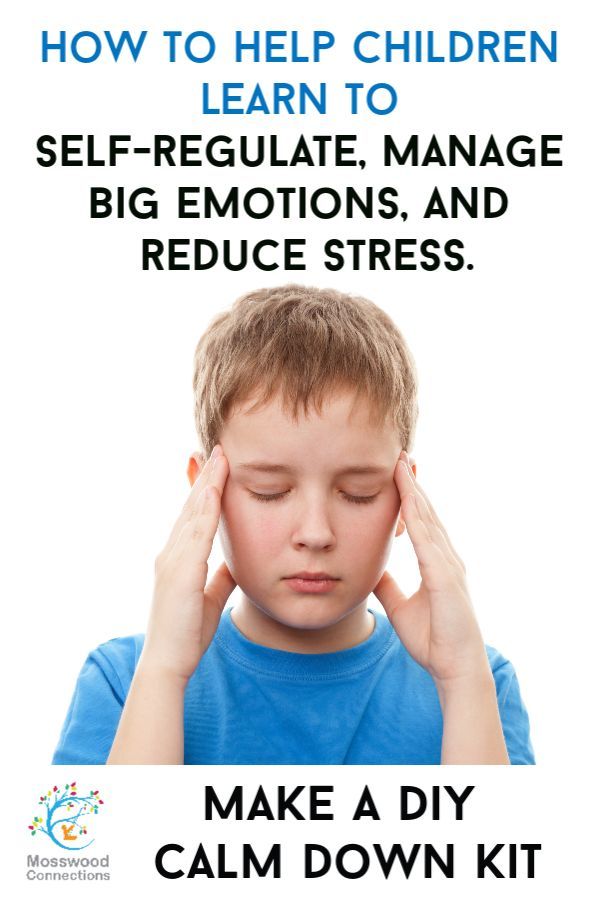 Yes, I'm worried, but I can handle my anxiety because I can do it. Even if I forget something, nothing terrible will happen.
Yes, I'm worried, but I can handle my anxiety because I can do it. Even if I forget something, nothing terrible will happen.
Do NOT do:
- Give a sedative before speaking or responding verbally. This is a temporary measure and will not solve the problem.
- Put pressure on a child: “You must answer well and get an A! Get it together!" This will only heighten his feelings.
- "Infect" with your anxiety: "You have a very important performance ahead of you. Dad and I are very worried and hope that you will not let us down.
Preparing for oral answers correctly!
Prostock-studio/Shutterstock.com
Whether you're speaking in front of a large audience or simply answering at the blackboard, proper preparation is essential.
The child needs to rehearse his speech in front of the audience, which can be parents or grandparents.
Step 1. We go to the board
Pay attention to the confident step and posture. Shoulders should be straightened, head raised, breathing even, deep.
Step 2. Assess the situation
In order not to stray from the right course, it is necessary to think over in advance your reaction to the actions of the teacher and classmates. To do this, we mentally imagine ourselves in the classroom: Vovka from the second desk constantly hooligans and makes “faces”, you definitely shouldn’t pay attention to him, but Dasha’s girlfriend from the fifth desk will always help and tell you, which means you can sometimes look in her direction.
Step 3. Starting to answer
Pay attention to the voice. It should sound confident, not too loud, but not quiet. The pace is measured, without long pauses. The more confident the student speaks, the more confident he will feel.
Step 4. Follow the plan
Any report should have an introduction, body and conclusion. It is better to plan the answer in advance and try not to deviate from it.
Step 5.
 We are not afraid of questions
We are not afraid of questions If the teacher asks a question about the topic of the speech, you need to be ready to answer it. Therefore, parents need to prepare a list of sample questions that the child may encounter in the lesson and ask them in a calm, homely atmosphere.
One rehearsal will be enough for the child to feel more confident and calm when he has to answer at the blackboard or make a presentation.
A look at the problem through the eyes of a teacher: who is most often called to the blackboard?
Prostock-studio/Shutterstock.com
Educators are also interested in students not being afraid to answer at the blackboard. In their opinion, oral presentations contribute to:
- the development of children's speech abilities;
- the formation of the ability to correctly express their thoughts;
- development of memory and critical thinking.
An experienced teacher will never accidentally call students to the blackboard.
By what criteria do teachers choose who will answer the material today? There are several of them:
- According to the list of students in the class magazine.
- Estimated. The choice falls on students whose grades have changed a lot (for example, the child moved from "fours" to "threes"), or those who need to "pull themselves up" by the end of the quarter.
- According to the reaction of the students. If someone is very worried and tries to hide behind the backs of his comrades, most likely the teacher will call him. But not from evil, but to help the student understand the material.
Calling to the board should not be a punishment for an unfinished task or a student's misbehavior in class.
Prostock-studio/Shutterstock.com
Teachers also have their own secrets about who goes to the blackboard:
- makes many mistakes in it.
- If the teacher explains new material and wants to consolidate it in practice, in this case, excellent students or good students usually “puff off” at the blackboard.

- If the teacher is interested in how the students have learned the material, he invites those children who often missed classes in this quarter to answer.
When a child is afraid to answer at the blackboard, the teacher is obliged to help and support him.
Teachers practice the following forms of work with such students:
- they are allowed to answer not verbally, but in writing;
- stay after the lesson to listen to the student one-on-one;
- use visual aids to help the student with the answer: plans, diagrams, tables, etc.
- are allowed to answer with someone in a pair.
Thus, teachers are also interested in the fact that children were not afraid to answer in class and were able to show themselves and their abilities.
Dear moms and dads, remember that the ability to express your thoughts in front of an audience and demonstrate your knowledge is a quality that will be useful to a child not only at school, but also in later life.
